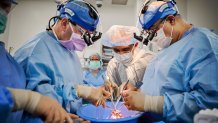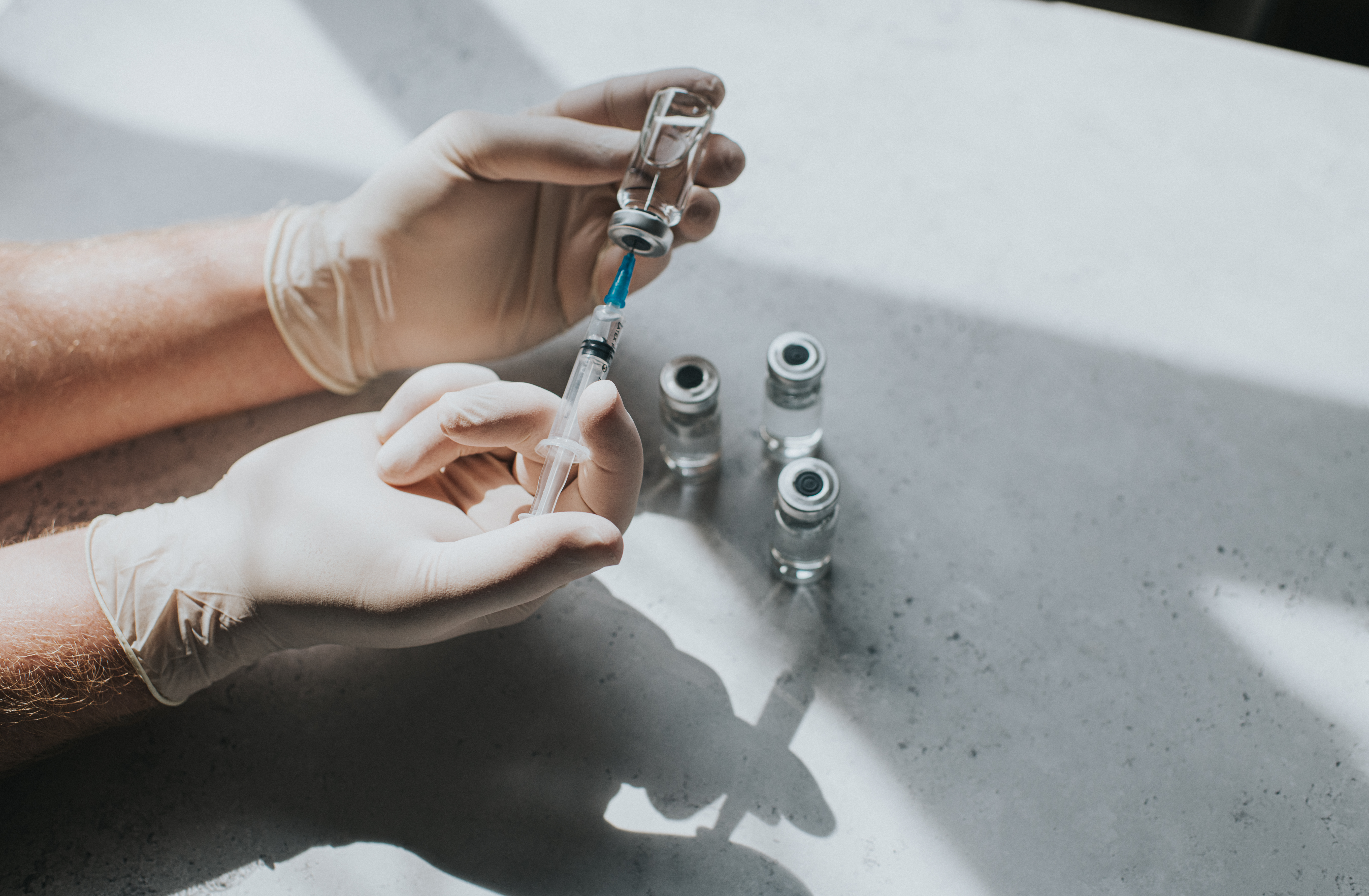A leading surgeon from NYU Langone Health has recently executed two investigational transplants of a genetically engineered, non-human organ -- a feat that could serve as a major game-changer for the future of medicine.
Currently, there is an organ shortage that has not improved in over decades. Over 100,000 men, women and children are on the U.S. waitlist to accept a transplant, based on the Health and Resources and Services Administration.
The latest transplants were conducted on June 16 and July 6 using a genetically modified pig heart with 10 modifications obtained from a facility hundreds of miles from New York City.
Dr. Robert Montgomery is the chair of the Department of Surgery at NYU Langone Health and director of the Transplant Institute, which provides kidney, heart, liver, lung and pancreas transplantations.
Get Tri-state area news and weather forecasts to your inbox. Sign up for NBC New York newsletters.
"Gaining a great understanding, learning, changing tactics -- this is a completely new frontier," said Dr. Montgomery during a press conference on Tuesday as he thanked the families who have also accepted these transplants.
He performed the first examined transplant of a genetically engineered, nonhuman kidney last year, marking a potential new way forward in supplying organs for transplantation.
The procedure included a kidney transplant into a deceased donor, utilizing a genetically engineered pig in xenotransplantation, defined as the transfer of living cells from one species to another.

At the time, the purpose of this experiment was to study the kidney's function while the donor was maintained on a ventilator. The research team looked for signs of donor rejection.
News
Based on the National Institutes of Health, experiments on xenotransplantation have been analyzed for 300 years, but modern-day science can help lead these studies to generate more organs to fill the supply gap.
While considered a pioneer in this research, Dr. Montgomery grasps the personal challenges associated with the field. According to NYU Langone, this doctor experienced severe health complications where he had "died and revived," enduring several episodes over the past 30 years.
He suffered from familial dilated cardiomyopathy, a form of heart disease where the organ muscle becomes weakened in at least one chamber causing issues to pump the blood.
Dr. Montgomery received a heart transplant in September 2018 and continues to perform life-saving surgeries to this day. He was just one of the thousands of Americans who were in desperate need of immediate care.
Organ Donation Statistics
17 people die each day on hold for the crucial call, while every 9 minutes someone new is added to the national transplant list.
In New York state, about 9,000 residents are searching for a new organ, and on average, one New Yorker dies per day waiting for a transplant, according to Live On NY.
The most needed organ is the kidney, while the most difficult to transplant is the lung. For pediatric donations, the procedure is even more complicated in finding the right match in a child's organ size.
Last year, over 40,000 transplants were performed with Americans ages 50 through 64 most in need of the surgery. However, people of every age, gender and ethnicity are found on the list.
If one chooses to become a donor, he or she can save up to 8 lives and enhance over 75 more through sharing organs, cornea and tissue.




